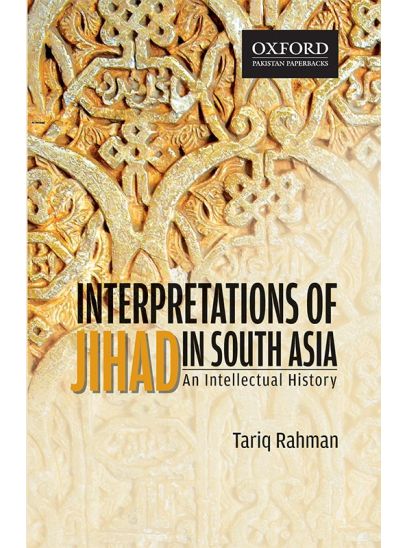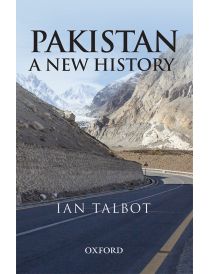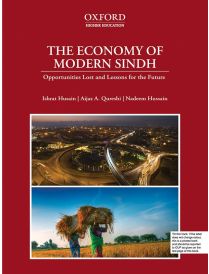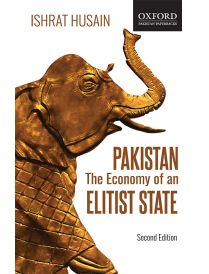Interpretations of Jihad in South Asia: An Intellectual History
Winner of the 9th UBL Literary Awards 2020 for the Best Non-Fiction in English
Winner of 2020 KLF-HabibMetro Non-Fiction Prize
In the wake of radical Islamist terrorist attacks described as jihad worldwide and in South Asia, it is imperative that there should be a book-length study of this idea in this part of the world. The focus of the study is the idea of jihad with its changing interpretations mostly those available in exegetical literature of key figures in South Asia. The hermeneutic devices used to understand the meaning of the Qur'anic verses and the Prophetic traditions relating to jihad will be the focus of this study. The main thrust of the study is to understand how interpretations of jihad vary. It is seen as being both defensive and aggressive by traditionalists; only defensive and mainly about moral improvement by progressive Muslims; and being insurrectionist, aggressive, eternal and justifying violence against civilians by radical Islamists. One purpose of the book is to understand how the radical interpretation came to South Asia. The book also explains how theories about jihad are influenced by the political and social circumstances of the period and how these insights feed into practice legitimizing militant movements called jihad for that period.
Rahman has investigated ideas of jihad in South Asia to a breadth and a depth rivalled by no other. He has produced arguments about how they have changed which all should note. In the process, he has produced a book of great value both to the scholar and to the policymaker.
Francis Robinson, Professor of History of Islam in South Asia,
Royal Holloway, University of London
The degree of painstaking research and detail, which has gone into discussing the historical, linguistic, and intellectual aspects of jihad in South Asia comprises a praiseworthy addition to the understanding of the phenomenon of jihad (original in Urdu).
Khalid Masood, former Professor at the International Islamic University,
Islamabad and Chairman, Council of Islamic Ideology, Islamabad, Pakistan
Though Rahman’s work is focused on Quranic exegesis carried out since the late 19th century, he also provides a comprehensive overview of literature going as far back as the early centuries of Islam.
Ali Usman Qasmi, Associate Professor of History,
Lahore University of Management Sciences, Pakistan
 Weight in kg
0.31
Weight in kg
0.31
 Rights
For sale in Pakistan only
Rights
For sale in Pakistan only
 Year of Publication
2019
Year of Publication
2019
 Binding
Paperback
Binding
Paperback
 Pages
344
Pages
344




 Bulk Order
Bulk Order Request a Quote
Request a Quote



